"I didn't feel connected to the environmental movement"
Climate change has been an ongoing issue, however not all communities appear to pay direct attention to the disasters going on.
Whilst climate change affects all individuals regardless of race, religion, caste, or gender, people have different attitudes toward the topic.
In South Asian communities, there are often constant debates surrounding climate change, with some individuals advocating for positive change and others ignoring the ongoing issues.
DESIblitz looks at how climate change is impacting South Asian communities and whether they are attentive to activism efforts or simply feigning ignorance.
What is Climate Change?
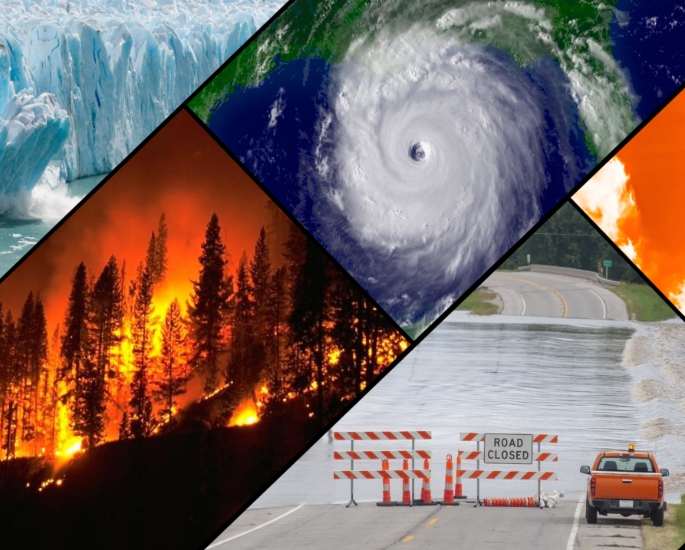
Climate change refers to long-term shifts and changes in global weather patterns and drastic temperature changes.
The term “climate crisis” has been used in conjunction when talking about climate change in recent years to describe the lack of changes that have put the planet in a state of crisis.
In fact, the term “climate crisis” is most accurately used when talking about the modern state of the planet which is undergoing the perils of manmade problems.
The effects of climate change are seen all over the world with rising global temperatures, melting ice caps, flooding, and deteriorating natural environments.
However, many individuals fail to acknowledge how a deteriorating environment can negatively affect every little aspect of human life and everyday actions.
Climate change is often described as a stress multiplier meaning it can take existing problems in the world and make them even worse.
For instance, greenhouse gases that are harmful to our environment can live in our atmosphere for hundreds of years, meaning gases already locked into our air may be contributing to pollution, wildfires and deforestation.
Even if all greenhouse gas emissions stopped in 2023, our planet cannot avoid some level of global warming due to the existing damage.
Though many people may not be aware of the extent that climate change impacts our lives, it does.
In fact, it’s contributing to many social, political, and environmental problems.
For instance, a New York Times article revealed how climate change is contributing to the rising cost of tampons in the US.
Whilst it is not an area you would think climate change could affect; it is startling to see how a worsening environment can deconstruct our lives from tampons to a full-blown cost-of-living crisis.
Are South Asian Communities Doing Enough?
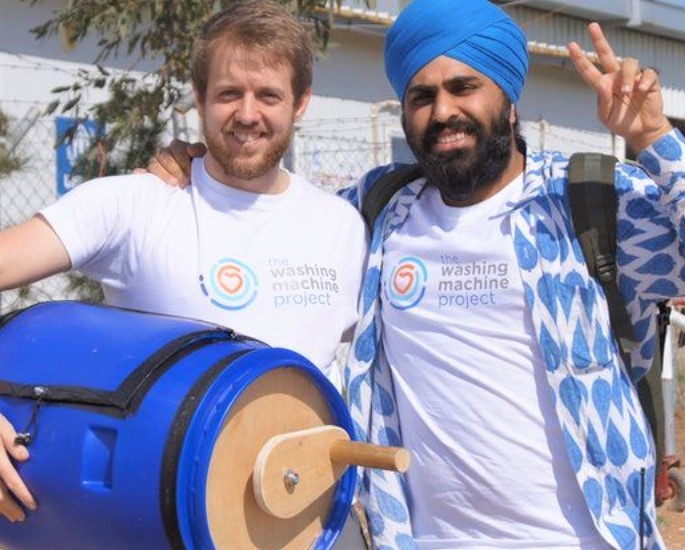
Climate change and the ongoing climate crisis is not a commonly discussed topic in the South Asian community or in Desi households.
However, many individuals argue that it should be, especially when the climate is something that affects individuals across the globe.
Speaking to a 40-year-old chartered building surveyor, Dipen Vanmali, he says:
“Climate change is having a massive impact upon current society, regardless of our background, faith, or religion.”
As Dipen describes, the destruction of our climate is something that involves everyone as it can influence every individual regardless of their background as we all live on and share this one planet.
Thus, if individuals in the South Asian community are aware of the climate issues, are they doing enough to preserve the environment and get involved in climate action?
Speaking to 21-year-old graduate Arjun Kumar he said:
“It’s not that people are not doing enough, it’s that they are not being heard.”
Arjun makes the valid point that there are communities that are directly involved in climate activism and environmentally friendly practices, but their actions are going unnoticed.
For instance, there are many South Asian-led organisations across the UK that are involved in climate justice efforts like Khalsa Aid, The Washing Machine Project, and Sewa UK.
One company that has been selflessly providing humanitarian aid in man-made emergencies and natural disasters for several years is Khalsa Aid.
The UK-based organisation was founded in 1999 and is now a worldwide humanitarian non-profit, helping people whose lives may have been inadvertently affected by environmental disasters.
In February 2023, Khalsa Aid set up a langar (kitchen) in Turkey following the devastating earthquakes. Here, they delivered essential food supplied to those affected by the natural disaster.
South Asian communities and organisations like Khalsa Aid have been making eco-conscious choices for years, as such practices have been embedded into South Asian lifestyles since the dawn of time.
Are we Ignorant of Climate Emergencies?
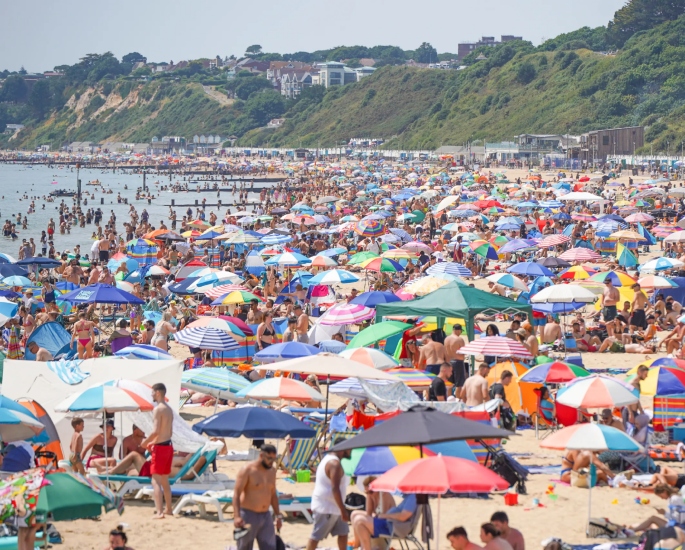
Whilst there are individuals in the South Asian community who strongly believe in the powers of climate activism and the devastating impact climate change can have, others do not.
In fact, there are some individuals who don’t even believe in climate change itself.
Speaking to 22-year-old university student Danny Khan, he says:
“Climate change is fake; it just seems like a global conspiracy concocted by the elite.”
The disbelief in climate change is nothing new as there have been groups who have been discussing conspiracies and theories surrounding the climate crisis for years, even deeming it a complete hoax.
However, this lack of belief by some South Asians explains why a small minority of them are less inclined to embroil in efforts to save the environment.
Alternatively, there are also individuals who believe the idea that South Asians ignoring climate change is a complete misinterpretation.
Speaking to the 23-year-old sound engineer and eco-conscious individual, Deepali Mistry she said:
“I think South Asian attitudes towards climate change can be misinterpreted as ignorance when in reality, the advice to lead a better eco-friendly life brings back years of living in poverty or a lower quality life for this community.
“We speak from a western, more privileged perspective than our elders in our ability to educate others on climate change and take action with fancy products.
“When in fact the community we are educating has lived out eco-friendly lifestyles.
“The only difference is the life our elders lived wasn’t by choice or celebrated as the world they lived in, had no better alternatives.
“These once eco-friendly communities adapted to a western lifestyle, and were told this is a better life”.
Thus, rather than ignoring the climate crisis, many older members of the South Asian community are simply not ready to enter back into a lifestyle they were once mocked for and one that was rooted in survival and struggle.
Is Climate Activism an Inclusive Space?
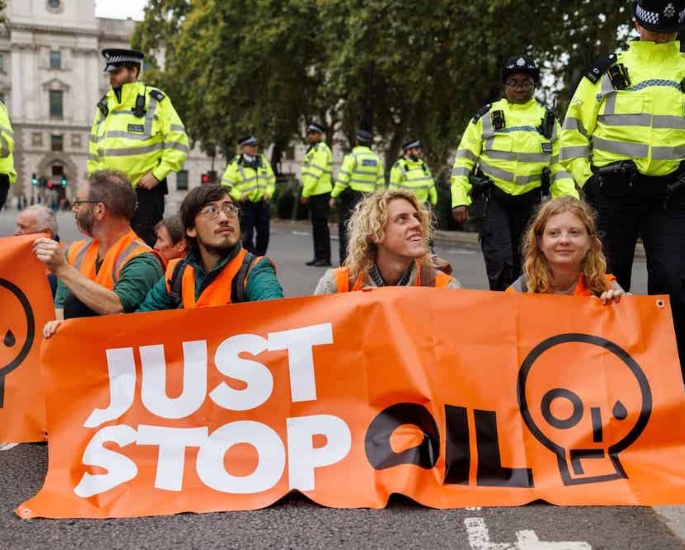
Though there has been a vastly mixed reception about the extent of the climate crisis itself, those who want to be involved in reparative efforts have found that some climate activism groups aren’t inclusive spaces.
For instance, organisations such as Just Stop Oil, Extinction Rebellion UK, Insulate Britain, and Green New Deal Rising are all climate activism groups that have created tight-knit communities.
However, there have been debates surrounding the inclusivity of these groups with reports calling out the ‘climate racism’ in environmental groups.
In a BBC news interview, climate activist Dominque Palmer expressed:
“I didn’t feel connected to the environmental movement. I saw it as a very white space and somewhere that wasn’t for me.”
This is a sentiment shared by many people of colour, including those in the South Asian community who have viewed current environmental activism groups as white-dominated spaces.
The lack of inclusivity can deter many South Asians from joining, leading them to ignore the matter completely despite wanting to be involved.
There is also a lack of representation when it comes to climate activism which Dominique also describes as off-putting. She said:
“If you’re not seeing yourself represented from the get-go, I think that separates a lot of people.”
Statistics in the racial diversity in environment professions 2022 report even showed that ‘environment professionals’ are one of the least racially diverse professions in the UK.
The findings outlined how only 4.81% identified as black, Asian or from other minority ethnic groups.
Not only are individuals from ethnic minority groups wary of joining climate activist groups, but they’re also demotivated from getting into the environmental sector itself.
They cannot see themselves represented in these spaces so what would allure them to the field?
Clearly representation and inclusivity matter in all aspects of our lives from social, and economic to environmental.
Perspectives Towards Climate Activism
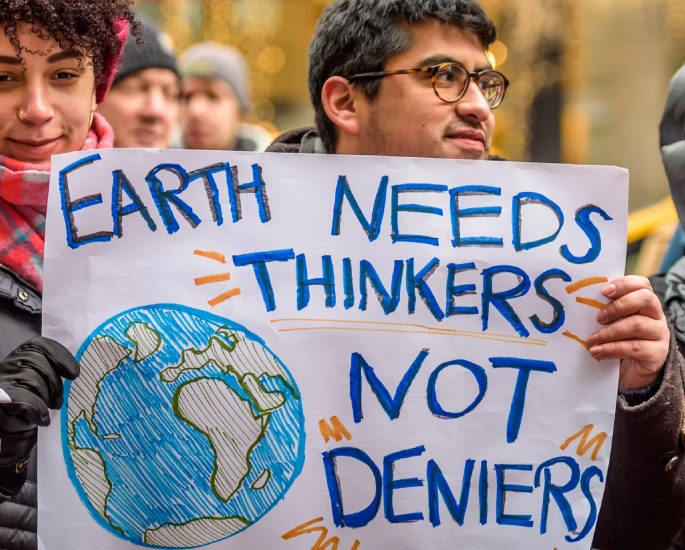
Whilst most individuals are aware that climate change needs to be acted upon, they are not too keen on ways activists go about doing so.
Numerous Just Stop Oil demonstrations are met with mixed reviews by members of the public who feel their actions are more disruptive than productive.
Their protests included a series of road blocking, soup throwing and super gluing themselves to art, in the name of raising awareness and engaging in non-violent civil resistance.
Building surveyor, Dipen said:
“Whilst we have all seen in the media of the human obstructions on motorways and individuals gluing themselves to art, all this does is add negativity to the cause.”
Negativity toward the cause, as Dipen described, was certainly the response that many of these climate activists faced.
Irate motorists would hurl abuse at them and the public accused them of wasting police time.
Dipen goes on to express that perhaps a different approach is needed to ensure positive change:
“Rather than parties saying we must take action, why not identify achievable goals throughout the short-term to try to tackle the mess we are in… at least for the next generation.”
This sentiment is shared by others who feel as though certain acts of awareness have become too disruptive and are doing more harm than good.
Speaking to 24-year-old project co-ordinator, Nayan Kumar, who shared a similar view, he said:
“I think their efforts are sometimes useless because the correct message is not portrayed when so much disruption is caused.”
Thus, whilst there is an acknowledgment that these efforts stem from a worthy place, it is the execution that the South Asian community and general members of the public find disruptive.
Whilst the topic of climate change often garners a mixed reception in the South Asian community, most individuals do not feign ignorance about the topic.
In fact, many individuals are working to live an eco-conscious lifestyle and have been doing so for years in small practices that go unheard of or unseen.
Though the topic requires an updated education within the community, small efforts are starting to be appreciated.
It won’t be long until these small efforts are recognised and contribute to build a healthier, safer and cleaner planet for future generations.






























































